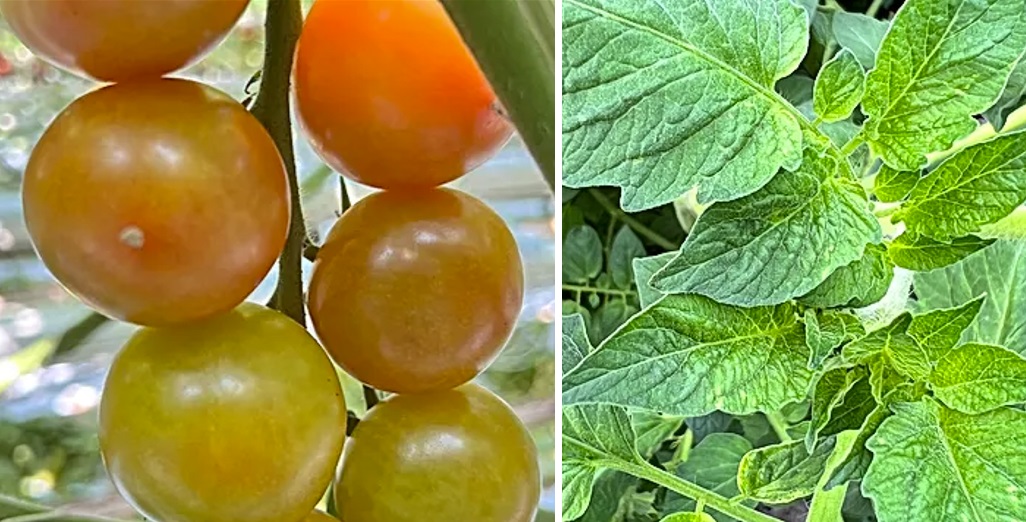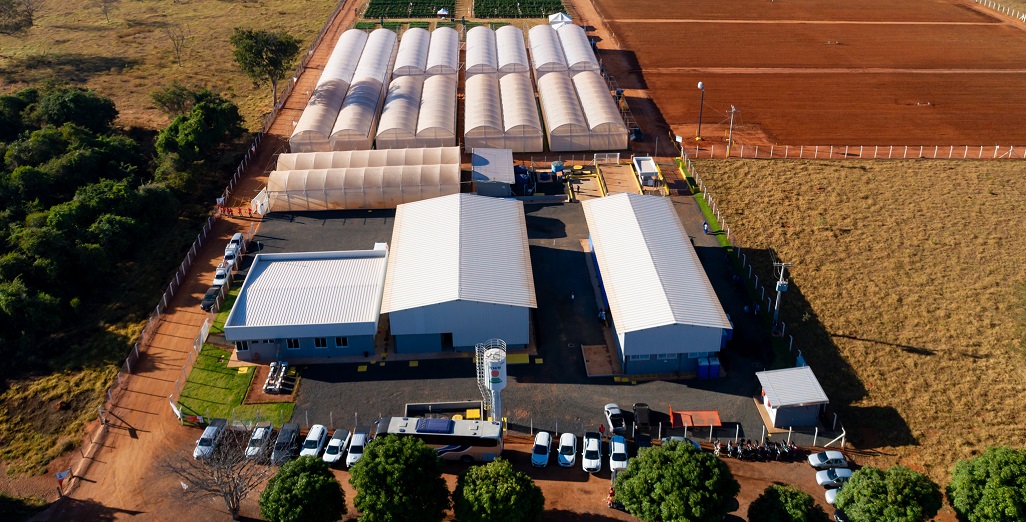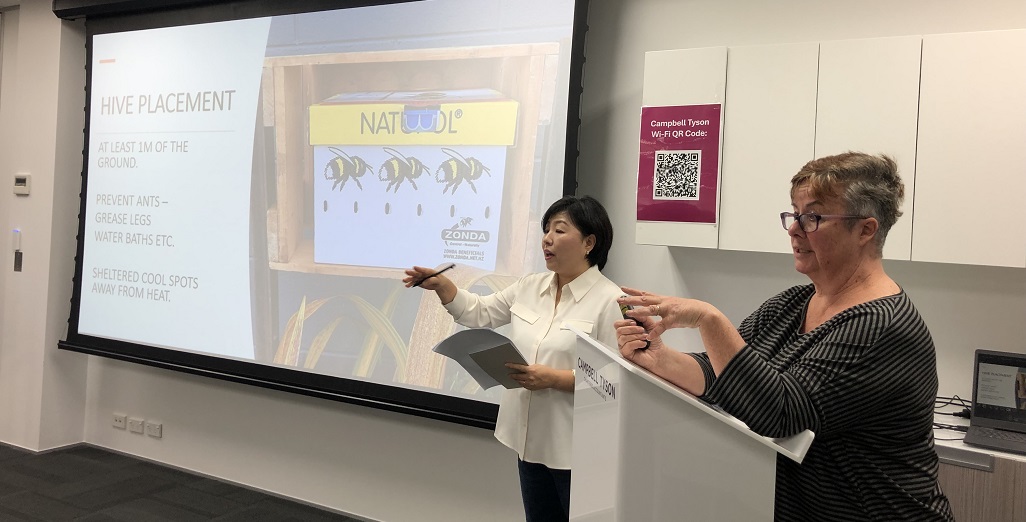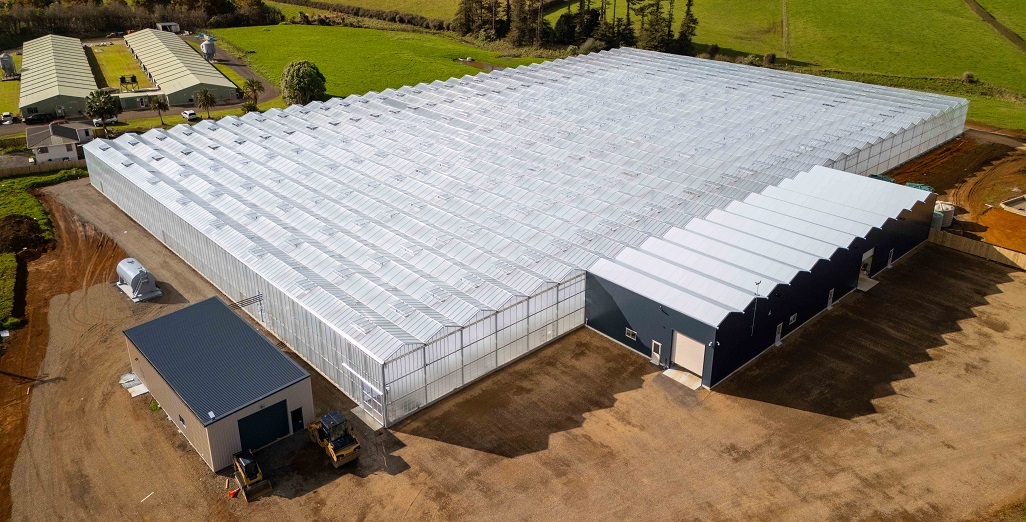Sign up here to subscribe to the Grower2grower Ezine. Every two weeks you will receive new articles, specific to the protected cropping industry, informing you of industry news and events straight to your inbox.
Nov 2018
Plants Mysteriously Deforming Update

Hormone Damage Suspected
Thanks to all that responded to the last issues article regarding the tomato plants that had been ‘mysteriously deforming’. Below is the first paragraph from the article.
Last week I was called to a property, in West Auckland, to take a look at tomato plants that were mysteriously suffering from deformities. There were different symptoms presenting, but with all the plants the end result was termination of plant growth. The leaves on some plants had become variegated and very spikey looking (hormone damage type look). On other plants, the flowers on the truss, looked to have gone white at the ends (potential phytotoxic damage from spraying or root drench) and other plants stopped setting and had the appearance of Candidatus Liberibacter solanacearum (CLso) vectored from the TPP (Tomato Potato Psyllid). The root systems looked fairly constant, there was not any indication that Pythium or root issues were the cause of the deformity. The plant was only 8-10 weeks old.
After several conversations, and with the help of another industry supplier, I now believe this is possibly damage caused from residual effects of weed killer. Something I failed to notice on inspection was the weeds growing in the holes, in the weed-mat, were also showing symptoms of hormone damage. It is possible that the grower had sprayed the weeds inside the greenhouse, when it was empty, but whatever product used has remained inactive in the exposed soil. Even after several months, and no signs of plant or leaf distortion evident in the newly planted crop, that when the natural conditions improved the chemical became active and hence the damage.
Regrettably, for this grower concerned, there is no miracle cure. The crop will continue to show damage or plants will terminate until the entire crop is removed. The first thing I would suggest is talk to whoever supplied the weed killer, for their recommendation of how to prevent the next crop from having similar issues. The second is to replace the weed-mat and perhaps use an impermeable plastic to cover the greenhouse floor.
I would also like to acknowledge the e-mail I received from Hill Laboratories, as I had in the article listed Clos bacterium that psyllids carry as a possible cause for the plant and leaf deformity:
Hill Laboratories, have a test to determine if the psyllids present on the plants are carrying the CLos bacterium. From your article it looks like you are wanting to have a diagnostic test for the plant. The test we developed is to determine if the psyllids are infected rather than the plant. From talking to experts at Plant & Food who are looking at whether plants (potatoes, tomatoes and other Solanum species) are infected with CLos it seems that the infection is not systemic and it is often hard to get the infected tissue for testing. The area that looks like it is infected may not actually be where the infection is. Given this uncertainly around the results in plant tissue we have not developed a rapid accurate test for the plant and hence our test is psyllid based. We would be more than happy to help you determine if you have 'hot' psyllids (psyllids carrying CLos). Psyllids can be sent to us for testing either individually or in a composite of up to 10 individuals. if you would like more information how best to collect and store the psyliid for transport to the lab and to talk you through what is involved in the testing.
If you are interested in this test please contact Hill Laboratories.
I appreciate your comments. Please feel free to comment below or on the grower2grower Facebook page:
https://www.facebook.com/StefanGrower2grower/
Article Written by Stefan Vogrincic, Consultant, Grower2Grower
CLASSIFIED
Subscribe to our E-Zine
More
From This Category

Tomato grower applies Tobre after contamination

KWS inaugurates new R&D facility in Uberlândia, Brazil

John van Santen joins the management of Metazet

Workshop for Auckland’s Korean tomato growers held last week

Could the Global Boom in Greenhouses Help Cool the Planet?

























